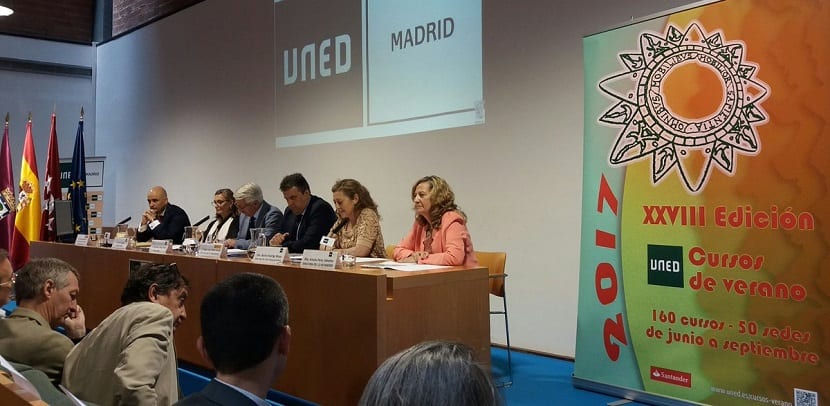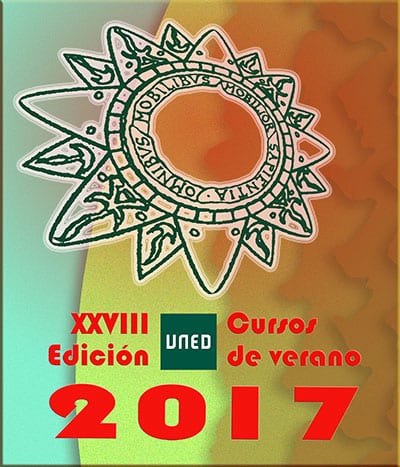
The UNED has already presented its offer regarding the XXVIII Edition of Summer Courses, to be held between June 21 and September 23, 2017 in various locations throughout the country. If you are interested in this type of course, here we bring you some of the most interesting. Below we leave you the link where you can have full access to this information and to all the available courses.
Some characteristics of these courses
These courses have the following characteristics:
- They will deal with 15 different subject areas, so you will have a lot to choose from.
- It brings together both leisure and culture in different places of tourist, cultural and heritage interest.
- Many of these courses are by videoconference and over the internet, both live and delayed, so you have access where and when you can.
- All present a virtual campus where you will find information regarding the course, forums, cats, etc.
- These courses are also available to penitentiary centers.
Some of the courses available

Anthropology
- Linguistic sexism: appearance or reality?
- Gender and equality.
- Show, need and symbol: foods and cultures in the XNUMXst century.
- Migrants and refugees: talent that adds up.
- The judicial protection of abusive clauses.
- Communication of violence, violence in communication.
- Health and illness. Contributions from social anthropology and social sciences.
- Social intervention in the prison context.
- Sustainable food: challenges in today's society.
- Anthropology at home. Field work without exoticism.
- Landscape and heritage in the Iberian mountains. Challenges for the future.
- Beliefs, superstitions and rationality in Spain and in Hispanic America from the historical and anthropological perspective.
- Art and legend on the medieval Camino de Santiago.
- Anthropology of hopelessness: the influence of change in human societies.
- Psychological well-being: love, wine and rock and roll.
- Magic, witchcraft and superstition in history.
Communication
- Linguistic sexism: appearance or reality?
- Politics in the digital age.
- Show, need and symbol: foods and cultures in the XNUMXst century.
- Digital marketing and companies 2.0.
- Communication of violence, violence in communication.
- Legal documentation: theory and practice.
- Personal brand: become a professional that makes a difference.
- How to identify 'nonsense in science'. Introduction to the fundamentals of scientific knowledge.
- Creation of interactive and accessible ePubs: modular electronic mini-books.
- Social intervention in the prison context.
- Life skills and improved employability.
- Applications and development of emotional intelligence.
- From Cervantes to Chirbes. Dénia and literature.
- Encouraging the development of your professional career: the creation of a personal brand.
Education
- Society and cinema.
- Psychology and education 4.0: educating Generation Z.
- School education, vocational training and lifelong employability. Some critical perspectives.
- Organic Law of December 28, on Comprehensive Protection Measures against Gender Violence: thirteen years later.
- Psychology and music.
- Mates everywhere.
- Sports psychology: initiation and disability.
- Gender and equality.
- Happiness and emotional well-being.
- Learning strategies in formal and non-formal education.
- Migrants and refugees: talent that adds up.
- Prevention of addictions in adolescence.
- Seduction psychology.
- In-company training, career development and recruitment techniques today.
- Down syndrome, family and school perspective.
- Education today: problems and proposals (tribute to Professor Ramón Pérez Juste).
- II Refresher course for E-L2 / LE teachers: Teaching tools and resources.
- Supervision and inspection of centers for the improvement of educational practice.
- The educational evaluation under debate. Analysis of its educational and social role.
- Family and gender violence: multidisciplinary intervention.
- Communication of violence, violence in communication.
- Strategies for the classroom: didactic proposals for times of conflict and change.
- Causes and consequences of violence in the family: abused parents.
- Training as the key to insertion.
- Psychoeducational development of emotional intelligence.
- Neuroscience, psychology and education of emotional regulation.
- Our educational system under debate: paradoxes and dilemmas.
- Creation of interactive and accessible ePubs: modular electronic mini-books.
- Strategies for geospatial knowledge in secondary education.
- Quality of life and mental health. A bio-psycho-social perspective.
- Studying, working and innovating with second languages in open, mobile and social environments within the classroom.
- Positive emotions, emotional intelligence and coaching.
- Values in family identity: implications at home and at school.
- Managing emotions with mindfulness: a path towards adaptive emotional regulation.
- More life and better life! Let's reflect on aging.
- Techniques and means for labor insertion in the knowledge society.
- Ubiquitous and mobile learning.
- Life skills and improved employability.
- The ecosystem of social entrepreneurship: initiatives to improve the world.
- Violence, aggressiveness and conflict resolution.
- Popular astronomy - Sigüenza Starlight.
- Applications and development of emotional intelligence.
- Beyond the limits of the Law against gender violence.
- Psychopathology, evaluation and intervention in Borderline Personality Disorder.
- The mediation school. Culture of peace to end bullying.
- The development of intellectual capacities.
- Technological and methodological updating course for the formal and non-formal learning of second languages.
- Mediation in the school environment.
- Encouraging the development of your professional career: the creation of a personal brand.
This summer of 2017, in total the UNED offers 145 courses, which you can consult in this link. If you do any of them or several, enjoy it! It is always a good time to train and expand your knowledge.